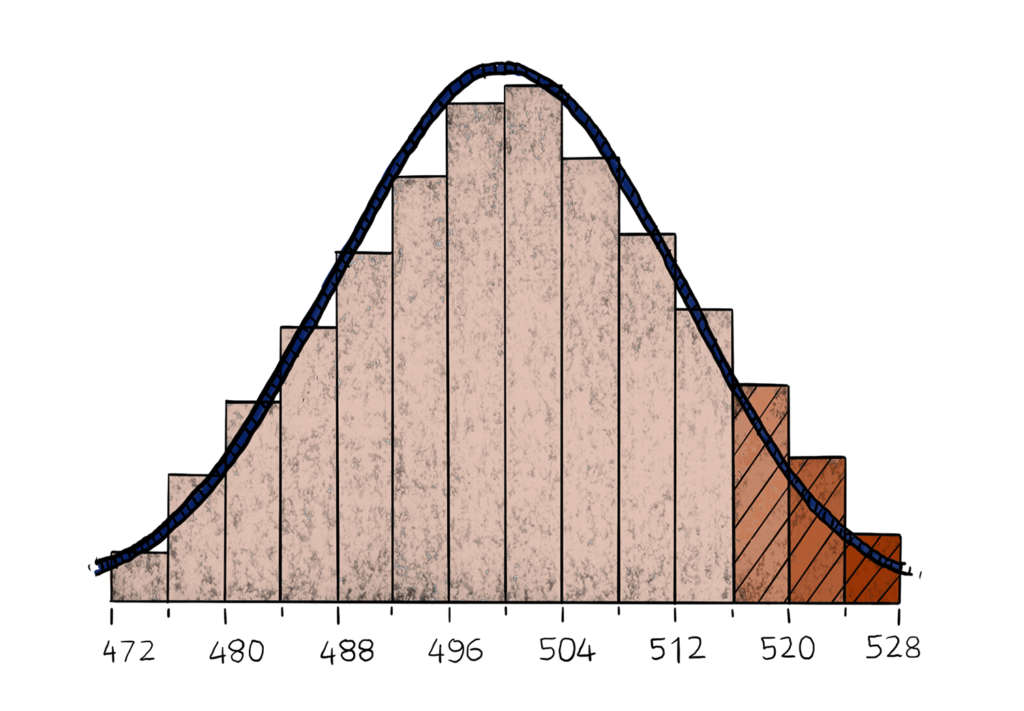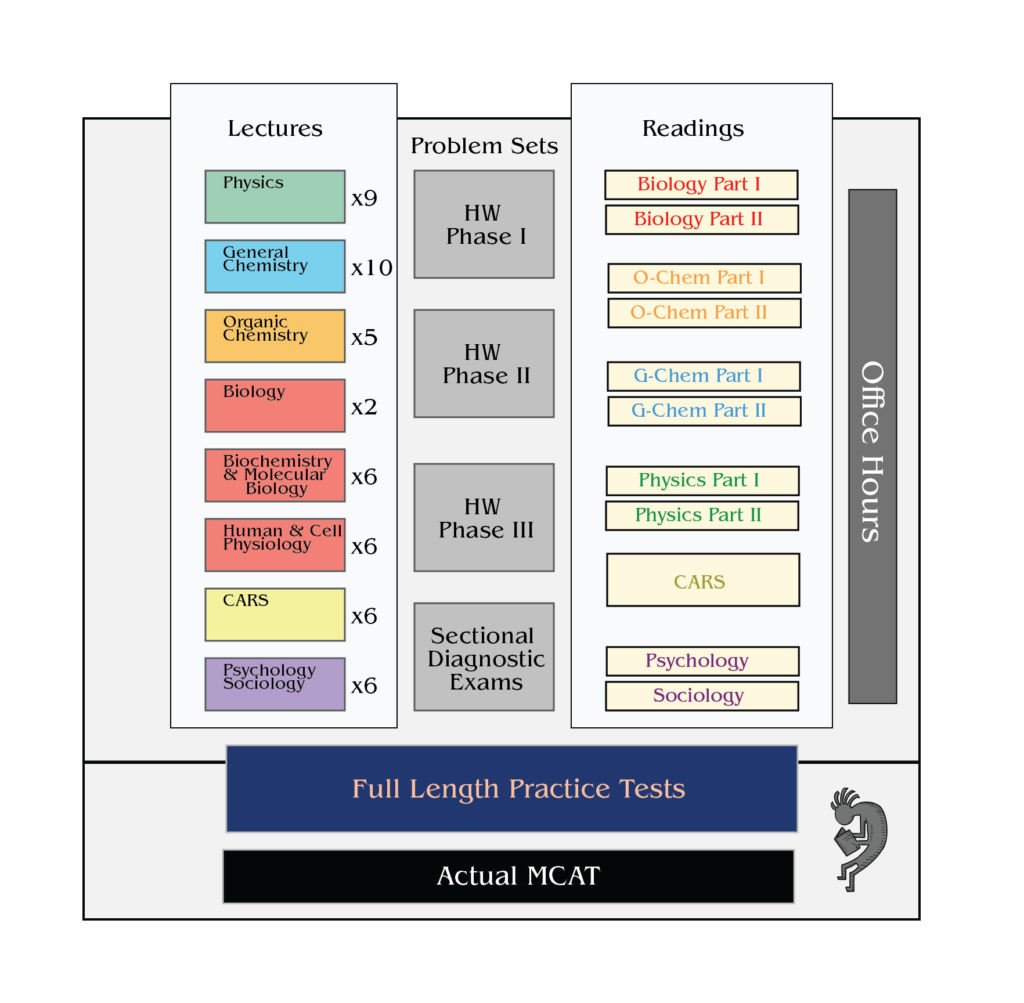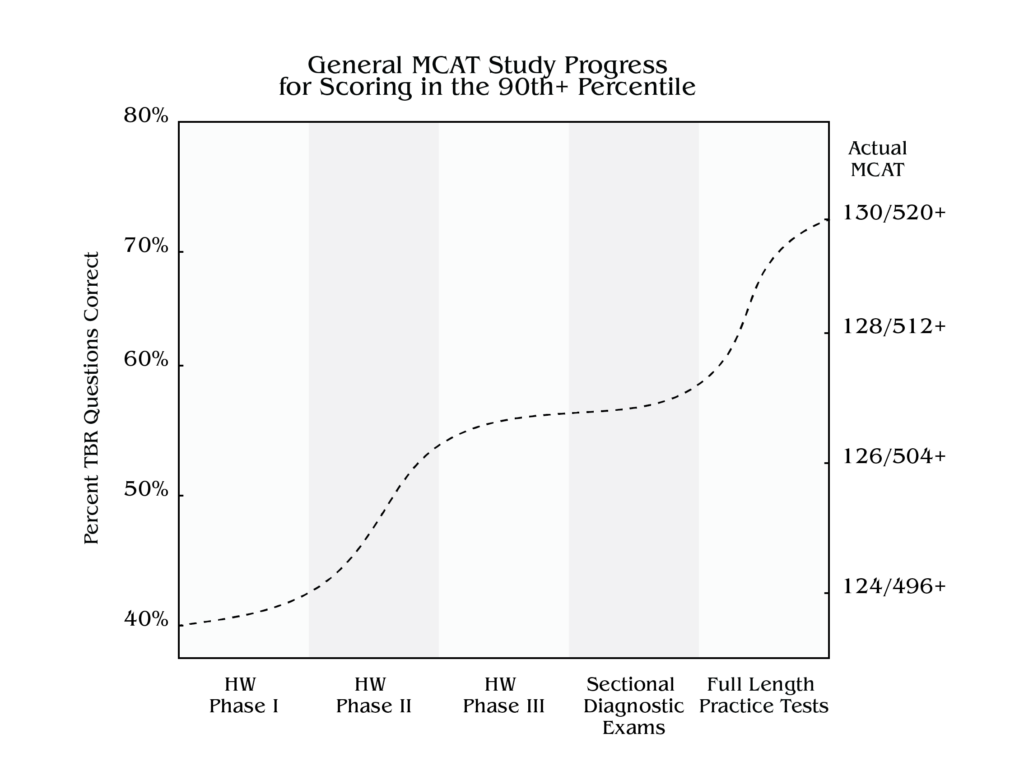
Set Your
MCAT Score
Goal Here
How to score in the 90th+ Percentile on the MCAT.
The MCAT is undoubtedly one of the most daunting exams in the academic hierarchy of entrance exams. With 230 questions spanning over 10 major subjects and combining 4 years of university-level classes into one 7.5 hour test, there’s enough material to make even the A+ student quiver. The MCAT serves as a rite of passage in any prospective medical student’s journey and marks only the beginning of the personal commitment needed to join the ranks of people in medicine – one of the most important and fundamental professions in society.
There are telling strategies that differentiate the high scorers from low scorers. And the fundamental secret is simple – hard work and motivation. This seems like stating the obvious, but with the overwhelming amount of in-depth material covered on the MCAT, the potential for burnout is high…and not uncommon. Prospective students must be prepared to commit several months to intensive yet efficient studying and stay motivated through maybe less-than-stellar initial practice scores. It is important to realize that the students who score in the top percentiles of the MCAT have not only mastered the material, but have also mastered the art of test-taking. How you plan to leverage your study time and what you choose to focus on is critical to a high score.
A couple of key things to consider before you begin your MCAT study journey…
Sign up for your MCAT Test as soon as possible.
Signing up for your MCAT exam date before you begin studying is a great way to establish an end goal in your study regime and lock you into the necessary mental commitment needed for productive studying.
Before beginning to prepare for the exam, you should ensure you’ve gone through most of the prerequisitesand have the time to commit several hours every day to studying for 12-24 weeks depending on your university course load, employment, or other obligations.
Note: MCAT Registration opens:
October
for April, May, and June MCATs.
May
for July, August, and September MCATs.
Determine whether you prefer a review course or self-study.
Are you a someone who prefers a traditional instructor-student style learning or do you prefer to work alone? Groups of people say they would have never been able to score where they did without the structured benefits from a formal course while other groups of people swear by only self-study. Both methods are correct. It is important to be honest with yourself about your preferred learning style to set yourself up for success. Regardless of whether you decide to do a full review course or a self-study approach you decide, consider the following:
Full Review Courses:
Full review courses are ideal for students in favor of a more structured study regime. Consider signing up for a course with some portion taught LIVE. Recent reports from generic online learning platforms such as Udemy and Coursera have showed that modular-only classes have a significantly higher dropout rate than LIVE classes. Additionally, when you have to pay for a class, you’re making an up-front investment to staying committed to your goals.
Ensure you have the time to commit to a full review course. The best review courses are equivalent to a high course load at the University level. Expect to attend lectures 5 days a week, complete recommended homework and readings, and be able to study in the early mornings or late at night like you are studying for hard midterms or finals.
Visit office hours frequently. Take advantage of your course instructors to check in on progress and draw upon their expertise with the most challenging concepts.
Leverage peers for help. What better way to prepare than by engaging with other students who are also studying for the MCAT? Working within a small study group is helpful when breaking down difficult concepts. Additionally, if you’re able to explain a difficult concept to another student, you are more like to retain it on the test. Identify courses that cap class sizes between 20-30 people – this ‘discussion-section’ size enhances peer-to-peer and peer-to-instructor interactions.

A schematic showing the core components of The Berkeley Review’s lecture program. Live lectures from six specialized teachers with over 100 years of combined MCAT teaching experience integrated with the three sequential homework phases containing problem sets designed to test the hardest types of MCAT questions. Plus supplemental readings from review books, in-class handouts, and post-lecture summaries. All accompanied with full length practice exams and review sessions before test day.
Self Study:
Self-Study learning from home is another great option when studying for the MCAT as a home-study regime is generally cheaper and completely flexible to your schedule. To keep yourself accountable and stay on track with topics, consider the following tips:
Carve out dedicated study time each day. Generally students spend 12-24 weeks of studying depending on their study pace. Here are three popular study guides you can use to start your study plan.
Complete as many challenging practice problems as possible. There is a very significant correlation between the number of practice passages completed and actual MCAT score – the more passages complete, the higher the score. Challenging yourself to navigate difficult passages and learn from practice questions you initially answer incorrectly forces you to understand concepts in a dynamic way leading to higher retention on the exam.
Complete 7 to 12 full-length practice exams. Considering these are time intensive practice tests, refrain from beginning your full-length exams before you’ve gone through at least 80% of your content review. Practice tests are a valuable asset and should only be taken when you are ready to get the most learning from your score.

A graph showing the general progress of student’s working through the MCAT problem sets in TBR’s home study review books and practice exams. Practice questions in each phase of the homework expand skill sets for all advanced MCAT topics. Students who are able to get through the majority of these harder problem sets by actively completing HW phases typically score very high on exam day.
Bottom Line.
Despite the urge to jump right into MCAT material review, make sure you’re giving sufficient thought into how you’re going to study and stay motivated during this intensive time. Setting yourself up for success on the MCAT is key to nudging you closer to the top percentiles.
For more information on best-in-class full review courses and self-study materials with over 7,000 of the most comprehensive practice problems, visit: http://3.87.102.135/.
